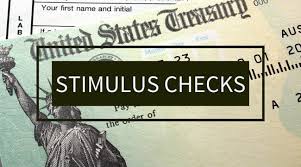
(WASHINGTON, D.C.) – Lawmakers struck a $2 trillion stimulus deal early Wednesday that includes sending checks directly to individuals amid the coronavirus crisis — but it will likely take until at least May before the money goes out.
CNN reports, under the plan as it was being negotiated, single Americans would receive $1,200, married couples would get $2,400, and parents would see $500 for each child under age 17.
However, the payments would start to phase out for individuals with adjusted gross incomes of more than $75,000, and those making more than $99,000 would not qualify at all. The thresholds are doubled for couples.
About 90% of Americans would be eligible to receive full or partial payments, according to estimates by the Tax Policy Center. Lawmakers set aside $250 billion for the so-called recovery rebates.
Qualifying income levels will be based on 2019 federal tax returns, if already filed, and otherwise on 2018 returns.
There are provisions in the bill to include those who don’t earn enough to file returns, but some people may be missed, said Howard Gleckman, a senior fellow at the center.
Under the legislation being negotiated, lower- and middle-income Americans would receive just over two-thirds of the benefits, Gleckman said. An earlier version of the bill would have given lower-income households less or no assistance.
As for Mnuchin’s recent promise to send the checks in two weeks, that’s not likely to happen.
The Internal Revenue Service has offered some insight into how long the process might take.
“Certainly from what we’ve seen in the past, it’s taken a pretty significant amount of time to get checks out after a policy is put in place,” said Erica York, an economist at the Tax Foundation.
In 2001, it took six weeks for the IRS to start sending out rebate checks authorized by President George W. Bush’s tax cut. Then in 2008, amid the Great Recession, it took three months for the checks to start going out after the law was signed by Bush. In that case, Americans were required to file their tax return first, in order to get the check. Once they filed their return, it took between eight and 12 weeks to see the money.
Those that had authorized a direct deposit into their bank account likely received their money faster. Those deposits were made over a three-week period in 2008, while paper checks were sent through the mail over a 10-week period, York said.
It’s likely that Americans would receive the stimulus payments faster this time around because more of them file electronically and provide the IRS with their bank information, Gleckman said.
But there are other factors that may slow the process. Even absent the coronavirus challenges, the agency is working with a smaller budget and less staff than it had in 2010. Now, because of the coronavirus, the agency has shut down its in-person taxpayer assistance centers located across the country at a time when people are sure to have questions about the emergency checks and other changes.
Treasury announced last week that it is pushing back the tax return deadline to July 15. Additionally, Congress created a new tax credit designed to refund businesses that are offering their employees coronavirus-related paid leave.
First, the IRS will have to calculate each person’s payment amount. Then, it will need the correct direct deposit information or mailing addresses. To get the money to people who don’t usually file tax returns, it might have to request that information from the Social Security Administration or Veterans Affairs.
Meanwhile, the IRS will inevitably be fielding calls from Americans concerned about when their check will arrive and whether they took all the necessary steps to receive the money. In 2001, the agency sent out letters to taxpayers telling them they didn’t have to do anything in order to receive their check. But instead of staving off calls, the notice had the reverse effect. It resulted in the agency’s first 1 million-call day, Olson said.
Information: www.cnn.com



